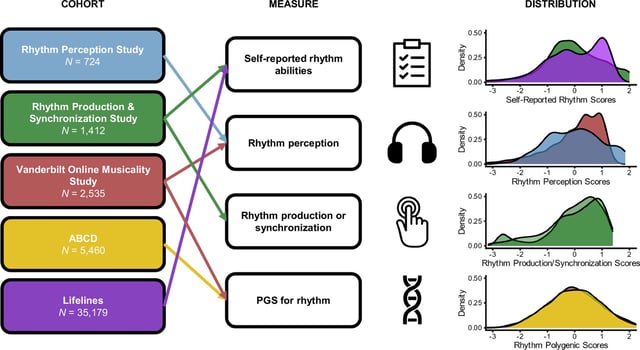Overview
- Across multiple cohorts, behavioral tests of rhythm perception, beat synchronization and self-reported ability were tied to greater odds of developmental speech-language problems.
- Genetic analyses showed shared architecture between rhythm and language traits, with rhythm-related polygenic scores predicting reading performance.
- Effects were modest in size, indicating potential value for screening and intervention design rather than diagnostic use.
- Stuttering did not follow the overall pattern, which researchers suggest may reflect exposure to rhythm-focused therapies among people who stutter.
- The study, led by Srishti Nayak with corresponding author Reyna Gordon at Vanderbilt University Medical Center, was published Sept. 24 in Nature Communications and was supported by NIDCD, NIDA and NIGMS.

